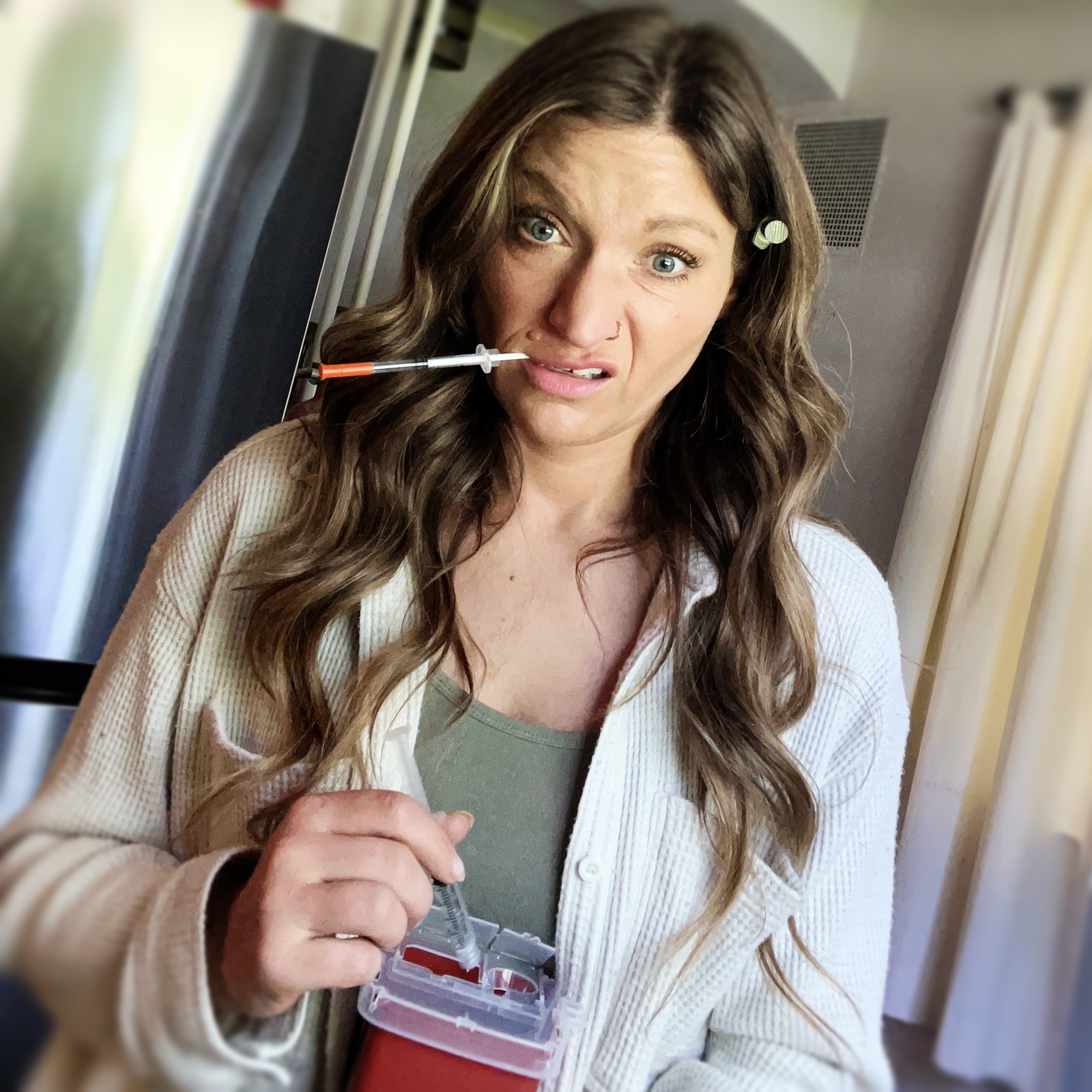IVF Relationships: How Infertility Impacts Marriage and What’s Helped Us Cope
- Amber Jean Wheatley
- Sep 1, 2025
- 4 min read

One of the hardest things about infertility is how isolating it feels. As women, we often find comfort in hearing each other’s stories—we realize we’re not alone, and that reminder can be life-changing. But there’s another part of the story I don’t see talked about as often: how this process impacts our marriages and partnerships.
Infertility doesn’t just affect me. It affects us.
Not because Adam and I have “problems” with each other, but because IVF itself is like an atomic bomb—it hits every part of life at once. Mental health. Physical health. Emotional stability. Social life. Finances. All of it. And when the blast is this big, it doesn’t just leave me reeling—it leaves him hurting, too.
The Silent Layer of Strain
For me, IVF has been a never-ending cycle of hormones, grief, and feeling like my body is betraying me. For Adam, it’s been watching me suffer, losing the dreams we’ve held, and carrying his own silent grief. Sometimes the weight of it all makes even talking about how we feel exhausting. We’ve had stretches where we both kept our pain to ourselves—not because we didn’t care, but because we were just too tired to say the words out loud.
But here’s the problem: when we keep it all bottled up, the distance between us grows. That’s when isolation doubles—not only am I alone in my infertility, but suddenly I feel alone in my marriage, too.
Common IVF Relationship Struggles in Infertility
If you’re going through this, you may have felt some of these, too:
Communication breakdowns. Both partners avoid talking about it because everything feels too heavy.
Emotional imbalance. One partner feels hopeful while the other feels guarded or fearful.
Intimacy struggles. Sex starts to feel clinical, or hormones/stress lower desire.
Resentment of coping styles. One person pulls away, the other wants to talk it out—and both feel misunderstood.
👉 If any of this feels familiar: you are not broken. This is what infertility does.
How We’ve Found Our Way Back
Over time, we’ve discovered a few things that help us stay connected through the chaos:
Small Check-Ins. We don’t always have the energy for big emotional talks. Sometimes it’s just a quick “How was your day?” or a text at lunch that says, “I love you.” Those little reminders add up.
The Code Word. Ours is “xylophone.” If one of us feels overwhelmed in a conversation, we say it. That’s our pause button. It doesn’t mean “never talk about this again”—it means, “Let’s circle back when we can handle it better.”
Scheduled Talks + Light Follow-Ups. We set aside time to check in emotionally, and when it’s heavy, we follow it with something grounding (like ice cream or a comedy) so we don’t get stuck in the heaviness.
IVF-Free Time. At least once a month, we plan something that has nothing to do with infertility—like a lunch date, a walk, or a silly outing. It reminds us of who we are outside of IVF.
Permission for Space. There are days when I want to talk about everything, and days when I absolutely can’t. Naming that out loud has been just as important as showing up when we can.
Quick Questions Couples Can Ask Each Other
If you don’t know where to start, here are three simple prompts:
“What’s one thing you need from me this week?”
“What feels hardest for you right now?”
“What’s one thing we can do this week that has nothing to do with IVF?”
When Extra Help Makes Sense
Sometimes the weight is too much for two people to carry alone. That doesn’t mean your relationship is failing—it means you’re human.
Options that can help:
Fertility-focused couples counseling. Many clinics have referrals to therapists who specialize in infertility.
Online therapy apps like BetterHelp or Talkspace that offer couples plans.
Peer support groups (like RESOLVE or AllPaths Family Building) where partners are welcome and you can connect with others who understand.
Helpful Online Resources
RESOLVE: National Infertility Association – Free virtual, peer-led support groups for individuals and couples.
AllPaths Family Building – Over 20 free virtual peer support groups each month, covering IVF, surrogacy, donor conception, pregnancy after loss, and more.
Reddit r/infertility – Large, candid online community for sharing experiences.
Naming What’s Real
Here’s the truth: IVF can strain even the strongest relationships. Not because the love isn’t there, but because the weight is relentless. And the shame attached to saying, “Our marriage feels heavy right now” only makes it worse.
But silence doesn’t protect us—it just isolates us further.
That’s why I believe talking about this matters. Infertility already piles on enough grief and guilt; the last thing we need is to feel like our marriages have to look untouched by the storm.
A Gentle Reminder
If you and your partner are walking through infertility, you are not alone. Whether you’re checking in daily, barely talking about it at all, or somewhere in between—you’re human. This process affects every aspect of life, including relationships, and it’s okay to acknowledge that out loud.
For us, it’s the little things—small check-ins, a silly code word, moments of light after heavy talks—that keep us tethered. Not perfect, not always pretty, but tethered.
Because at the end of the day, the reason we started this journey together—the love we share—is the same reason we keep going, no matter how messy it gets.
✨ What about you?
How has infertility affected your relationship, and what helps you stay connected? Your voice matters—and sharing it could help someone else feel less alone. 💙









Comments